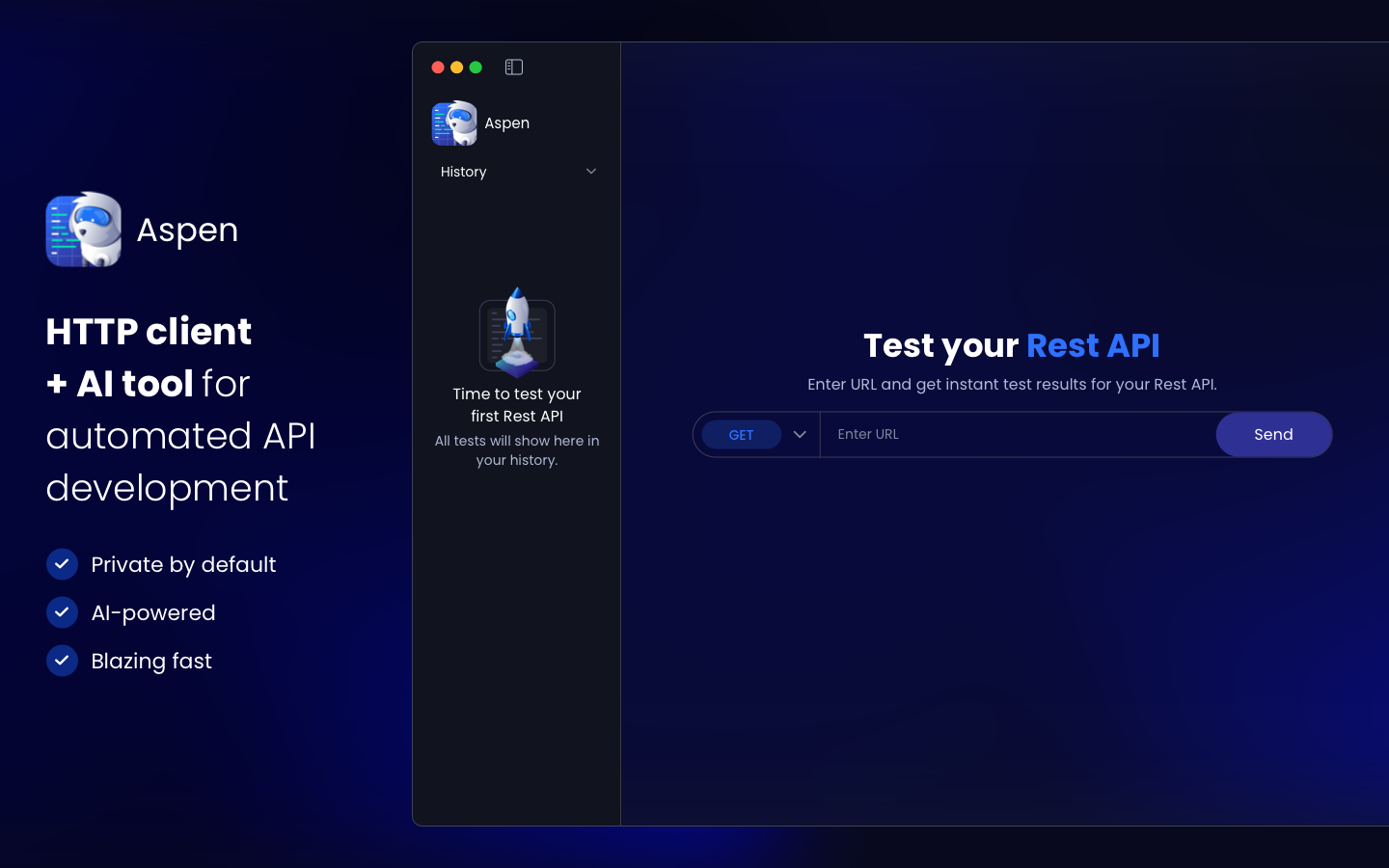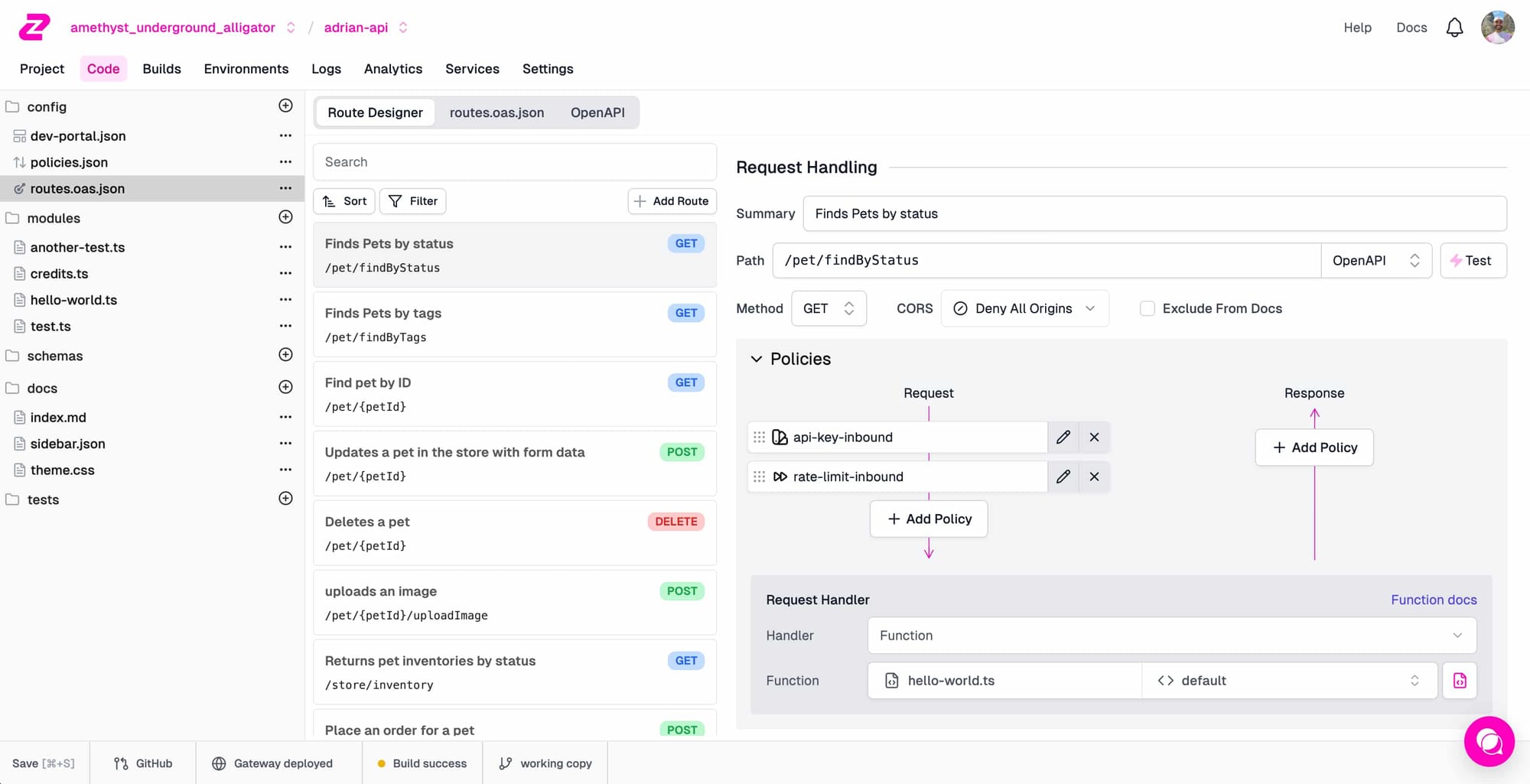By industry
By initiatives
By industry
By initiatives
API Design | Jul 22, 2024 | 17 min read | By Savan Kharod | Reviewed by David Blažević

Savan Kharod works on demand generation and content at Treblle, where he focuses on SEO, content strategy, and developer-focused marketing. With a background in engineering and a passion for digital marketing, he combines technical understanding with skills in paid advertising, email marketing, and CRM workflows to drive audience growth and engagement. He actively participates in industry webinars and community sessions to stay current with marketing trends and best practices.
APIs are becoming a crucial part of modern application development and IT infrastructure, and so is the need for API management tools. A good API management tool in your tech stack can help you streamline designing, deploying, securing, and monitoring your APIs.
But there are tens of options in the market. Which one should you choose? In this post, I’ll make it easy for you to make an informed choice by evaluating 10 of the best API management tools based on multiple factors.
So let’s get started!
Need real-time insight into how your APIs are used and performing?
Treblle helps you monitor, debug, and optimize every API request.
Explore Treblle
Need real-time insight into how your APIs are used and performing?
Treblle helps you monitor, debug, and optimize every API request.
Explore Treblle
API management tools are software solutions designed to facilitate the entire lifecycle of an API, from design and development to deployment and monitoring. Their primary purpose is to help organizations create, publish, secure, and analyze their APIs effectively.
Apart from API designing and modeling, these API management tools also support API security measures such as authentication, authorization, encryption, monitoring, and analytics capabilities.
By providing these comprehensive features, API management tools enable organizations to streamline their API workflows, ensure compliance with industry standards, and enhance their digital ecosystems' overall reliability and scalability.
API gateways act as intermediaries between clients and backend services, managing API traffic and enforcing rate limiting, caching, and authentication policies. They provide a single entry point for API requests, which helps route requests to appropriate services and gracefully handle failures.
Examples: Kong, AWS API Gateway, and Apigee.
API documentation tools facilitate the creation and maintenance of comprehensive API documentation, which is essential for developers who consume APIs. These tools often integrate with API design and development processes, allowing automatic generation of documentation from API specifications.
Examples: Treblle, Swagger, and Redoc.
API monitoring tools focus on tracking API performance, availability, and health. They provide insights into response times, error rates, and usage patterns, helping organizations identify and resolve issues promptly.
Examples: Treblle, Postman, Datadog, and New Relic.
API testing tools enable developers to test APIs' functionality, performance, and security. They support automated testing, ensuring that APIs meet their specifications and handle expected load conditions.
Examples: Treblle’s Aspen, Postman, SoapUI, and JMeter.
Treblle is a comprehensive API management tool with features covering the entire API lifecycle. From automated API documentation feature that generates detailed API docs to API observability that offers real-time insights into API performance and usage, here is all that Treblle offers:
Treblle’s API documentation feature automatically generates comprehensive and interactive API documentation directly from your code, saving developer time and improving efficiency by ensuring accuracy.
Treblle’s API documentation feature can be accessed inside the platform. Here’s a screenshot of this feature:
Need real-time insight into how your APIs are used and performing?
Treblle helps you monitor, debug, and optimize every API request.
Explore Treblle
Need real-time insight into how your APIs are used and performing?
Treblle helps you monitor, debug, and optimize every API request.
Explore Treblle
Treblle also offers an API observability feature that allows real-time monitoring, comprehensive logging, and insightful analytics to help developers quickly identify and resolve issues, ensuring smooth API operations.
Real-time monitoring offers instantaneous insights into API activity. It tracks every API request and response in real-time, providing developers with detailed information about performance metrics, errors, and latency.
Similarly, every API request and response is meticulously logged in Treblle, capturing all relevant data, including headers, payloads, and status codes. This comprehensive logging allows developers to trace issues back to their source, making debugging significantly easier.
Although Treblle doesn’t currently offer native API testing on its platform, it has a companion app, Aspen, that helps you test your APIs.
Aspen allows you to make HTTP requests to your REST-based APIs seamlessly and with ease.
Once you make an HTTP request, Aspen, an AI-powered tool, can generate data models, integrate code, and more in any programming language based on that request. As an API developer, this allows you to transition from API testing to an AI-assisted development phase easily.
Additionally, Aspen is a privacy-first developer tool, meaning that you do not need to create an account to use it, and your data is not saved on its servers.

Pros:
Cons:
Pricing:
Good Fit For
Bad Fit For
G2 Ratings:
Gravitee is an open-source API management platform known for its flexibility and scalability. It offers a range of features, including API design, traffic management, and analytics. Gravitee's API gateway supports various protocols and provides robust security features. The platform also includes a developer portal for API documentation and community engagement.
Pros:
Cons:
Pricing:
Good Fit For
Bad Fit For
G2 Ratings:
DreamFactory is an API management tool for generating APIs from existing data sources. It supports a wide range of databases and services, making it easy to create RESTful APIs without writing extensive code. Key features include API generation, user management, and role-based access control.
Pros:
Cons:
Pricing:
Good Fit For
Bad Fit For
G2 Ratings:
Integrate.io, formerly Xplenty, is a cloud-based data integration platform providing API management capabilities. It offers features such as API creation, integration with various data sources, and data transformation. Integrate.io's user-friendly interface and drag-and-drop functionality make it accessible to non-technical users. Dreamfactory is a part of Integrate.io’s ecosystem, but there are two tools that offer two different services.
Pros:
Cons:
Pricing:
Good Fit For
Bad Fit For
G2 Ratings:
Boomi is a comprehensive integration platform that includes robust API management features. It supports API design, deployment, and monitoring, with a focus on ease of use and rapid implementation. Boomi's integration capabilities are among the best in the industry, making it a strong choice for organizations with complex integration needs.
Pros:
Cons:
Pricing:
Good Fit For
Bad Fit For
G2 Ratings:
Zuplo is a programmable, OpenAPI native API gateway and management platform. It allows users to quickly build APIs, layer on policies, and deploy them to the edge in seconds. It also generates a full API developer documentation portal from your OpenAPI, so your docs and API implementation are always in sync.

Pros
Cons
Pricing
Good Fit For
Bad Fit For
G2
Postman is a widely used tool for API development and testing. It also offers API documentation, design, and workflows that help simplify each step of the API lifecycle and streamline collaboration so developers can create better APIs.
Pros:
Cons:
Pricing:
Good Fit For
Bad Fit For
G2 Ratings:
IBM API Connect is a comprehensive API management tool designed for enterprise use. It offers API creation, security, analytics, and lifecycle management features. IBM API Connect integrates well with other IBM products and services, providing a robust solution for large organizations.
Pros:
Cons:
Pricing:
Good Fit For
Bad Fit For
G2 Ratings:
Mulesoft Anypoint Platform is a leading integration platform that also provides extensive API management features. It supports API design, deployment, monitoring, and security, with a focus on connectivity and integration. Mulesoft's comprehensive features and strong support make it a top choice for enterprises.
Pros:
Cons:
Pricing:
Good Fit For
Bad Fit For
G2 Ratings:
Jitterbit is an integration and API management platform that offers API creation, integration, and analytics features. Its focus on ease of use and rapid implementation makes it a strong choice for organizations looking to deploy APIs quickly.
Pros:
Cons:
Pricing:
Good Fit For
Bad Fit For
G2 Ratings:
Kong is a scalable, open-source API gateway and management platform. It offers features such as traffic management, security, and analytics, with a focus on high performance and scalability. Kong's strong community support and extensive plugin ecosystem make it a popular choice among developers.
Pros:
Cons:
Pricing:
Good Fit For
Bad Fit For
G2 Ratings:
Securing APIs is crucial, as 40% of data breaches occur due to API-related insecurities, and APIs are often the first target of malicious attackers. API management tools help enforce security policies, control access, and protect sensitive data. They provide features such as authentication, authorization, encryption, and threat detection to ensure that APIs are not vulnerable to breaches and misuse.
API management tools can significantly boost API performance by telling you what’s wrong with your APIs and why. By analyzing your APIs' current stage and metrics, you can proactively act on any potential downtime, even before it occurs. This results in faster response times and a better user experience, even during peak traffic periods.
Monitoring APIs in real-time is essential to maintaining their reliability and performance. API management tools offer detailed analytics and monitoring capabilities, allowing organizations to track API usage, identify performance bottlenecks, and understand user behavior. This data is invaluable for optimizing APIs and making informed business decisions.
As businesses grow, their API traffic often increases, necessitating scalable solutions. API management tools are designed to scale effortlessly, ensuring that APIs can handle increased load without compromising performance. This scalability is critical for supporting the growth and evolution of modern applications.
Managing APIs' lifecycles can be complex, but API management tools simplify this process. They provide features for designing, developing, testing, and deploying APIs, streamlining the entire workflow. This reduces the time and effort required to bring APIs to market and ensures consistent quality.
Collaboration is key in API development, especially in large teams. API management tools offer collaborative features such as version control, shared workspaces, and documentation generation. These tools enhance communication and coordination among team members, leading to increased productivity and smoother project execution.
When choosing an API management tool, consider factors such as scalability, ease of use, security features, integration capabilities, and cost. Assess your organization's specific needs and priorities, and evaluate how well each tool meets those requirements.
Look for tools that offer comprehensive features, strong support, and a user-friendly interface. Additionally, consider the total cost of ownership, including licensing fees, implementation costs, and ongoing maintenance.
API management tools play a crucial role in modern software development, enabling organizations to create, secure, and optimize their APIs effectively. By choosing the right API management tool, businesses can enhance their operational efficiency, improve security, and ensure that their APIs are scalable and reliable. Consider your organization's unique needs and conduct thorough research to find the best tool that aligns with your goals.
Need real-time insight into how your APIs are used and performing?
Treblle helps you monitor, debug, and optimize every API request.
Explore Treblle
Need real-time insight into how your APIs are used and performing?
Treblle helps you monitor, debug, and optimize every API request.
Explore Treblle
 API Design
API DesignDiscover the 13 best OpenAPI documentation tools for 2026. Compare top platforms like Treblle, Swagger, and Redocly to improve your DX, eliminate documentation drift, and automate your API reference.
 API Design
API DesignAPI authorization defines what an authenticated user or client can do inside your system. This guide explains authorization vs authentication, breaks down RBAC, ABAC, and OAuth scopes, and shows how to implement simple, reliable access control in REST APIs without cluttering your codebase.
 API Design
API DesignRate limiting sets hard caps on how many requests a client can make; throttling shapes how fast requests are processed. This guide defines both, shows when to use each, and covers best practices.